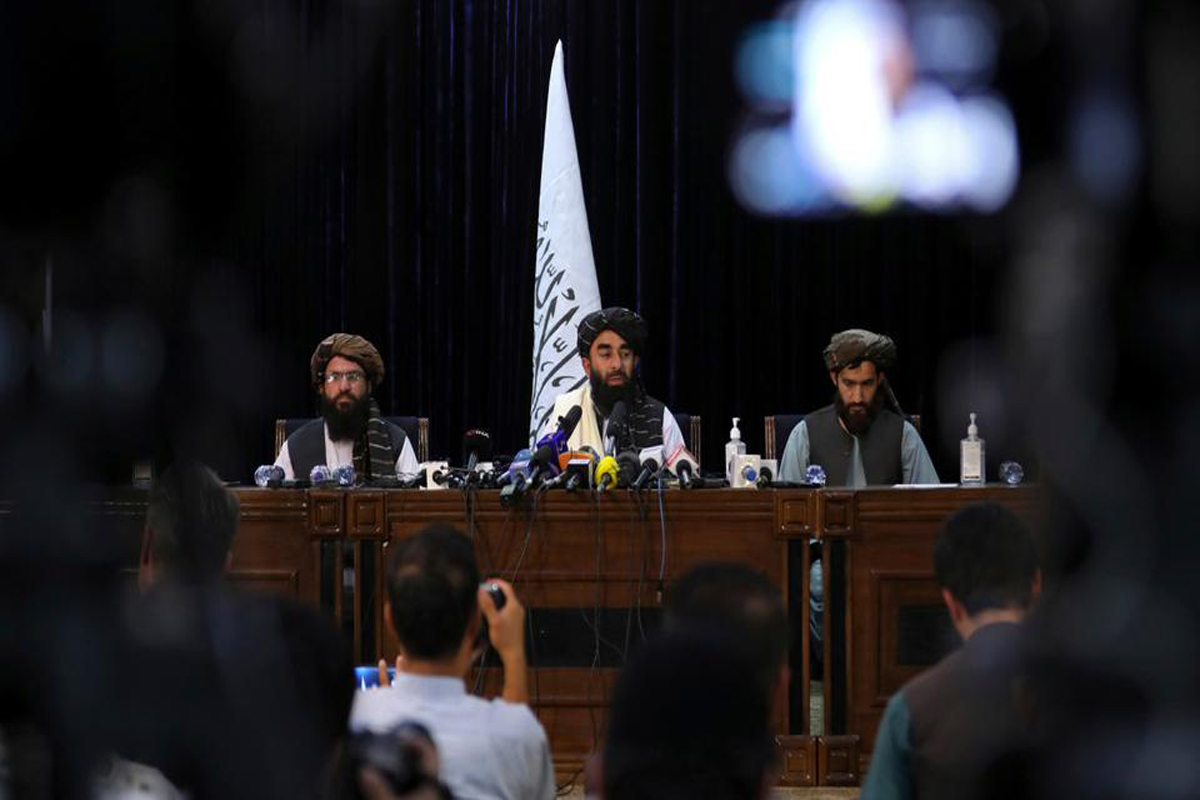Mauritius is like ‘Mini India’: PM Modi
Addressing an Indian community event in Mauritius, Modi said, "Mauritius is not just a partner country. For us, Mauritius is family."
In this context, West Bengal has been on the radar of the Union Home Ministry as there is a place called the ‘Chicken’s Neck’ which is popularly known as the ‘Siliguri Corridor’.

There is a serious threat perception in India after the recent takeover of Afghanistan by the Taliban and not only Jammu and Kashmir but several other states are also vulnerable in the context of this disturbing international development.
In this context, West Bengal has been on the radar of the Union Home Ministry as there is a place called the ‘Chicken’s Neck’ which is popularly known as the ‘Siliguri Corridor’. It is a vulnerable point due to its geographical location as it is very close to China. Given the bitter-sweet relationship between India and China, the Indian Intelligence authorities and the Armed Forces have been for long keeping a very close tab on the strategic quarter since India’s northern neighbour seems to have a keen tactical interest in the ‘Chicken’s Neck’.
Advertisement
In fact, China is a veritable “threat”, vis-à-vis the corridor. Its ambassador had visited Darjeeling in North Bengal a few years back and that became a controversial talking point.
Advertisement
If this Siliguri Corridor is cut off, then the entire North-East will be severed from mainland India. West Bengal is geo-strategically very important for the North-East of India, not only because of the ‘Chicken’s Neck’ but also the fact that the state shares a very long border with Bangladesh. For years, Pakistan’s ISI has been trying to create unrest in India by pushing Islamists and Jihadis by using the land of Bangladesh as well as the ‘Siliguri Corridor’. From this point, they can very easily make their way to Delhi, even to the restive Kashmir.
Recently, West Bengal Governor Jagdeep Dhankhar had visited Delhi and met several senior political leaders. He also sent a report mentioning the threat perception posed by different militant groups based in the North-East and West Bengal. He had mentioned that since 30 per cent of the population of the state is Muslim, there is a possibility of political and religious polarisation.
The ruling TMC and BJP are engaged in a bitter war of words and accusations and counter-accusations, sometimes even leading to acts of violence. This scenario provides a fertile ground to the militants.
Union Home Minister Amit Shah has taken a very serious view of this report and has directed the officials to tackle the situation. The assembly elections in Uttar Pradesh and Punjab are less than a year away and UP is already hogging the limelight since it has a history of violence based on religious and caste-based lines.
There are several Deoband (the Islamic seminary) backed and supported groups. Although the Taliban denies, everybody knows that it is actually promoting the ISI agenda in Afghanistan. The ISI Chief attended the official formation of the Taliban Government in Kabul. Perhaps, this is the first time in our global society that the ISI Chief officially got an invitation for the formation of any government in Taliban’s Afghanistan. It has emboldened several Islamic fundamentalist groups in Bangladesh also, apart from the Jamat. There are other groups also and in Afghanistan, the “Taliban Raj” has given a new lease of life to Al Qaeda, Lashkar-e-Taiba, Jaish-e-Mohammed and Jamaat-ul-Mujahideen Bangladesh (JMB).
Now, several militant organisations are rearing their heads again in West Bengal and Bangladesh. Majlis-ash-Shura has been inactive for several years. Now, after August of 2021, it is again getting active in Bangladesh and West Bengal, as the messages decoded by the IB reveal. In lower Assam, Barpeta and Dhubri, several secret meetings took place and from Bangladesh, some militants were invited by this militant organisation.
The Government of India has now given several vital inputs to the West Bengal government on the activities of the militant groups and asked it to keep a close watch on the situation.
Advertisement